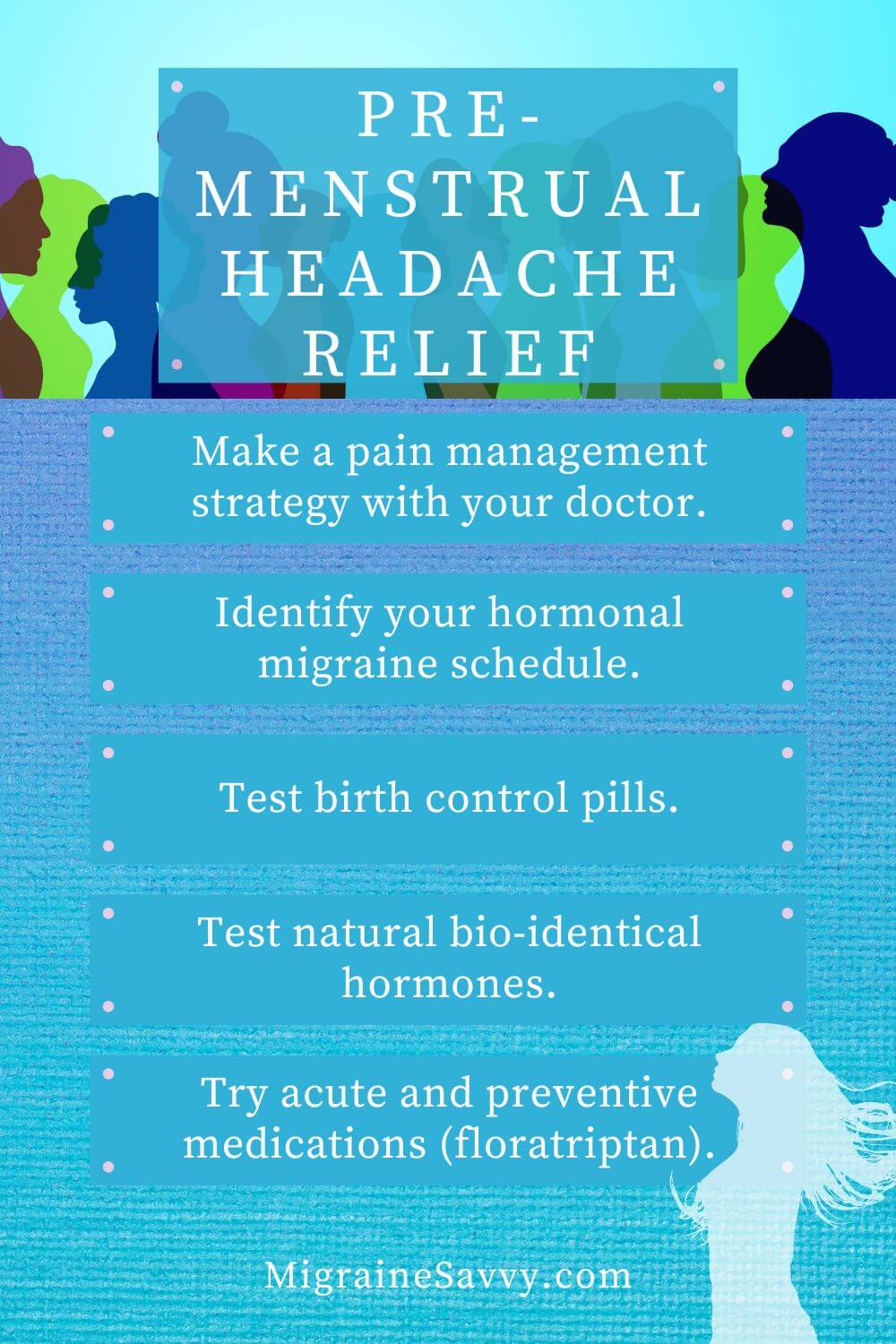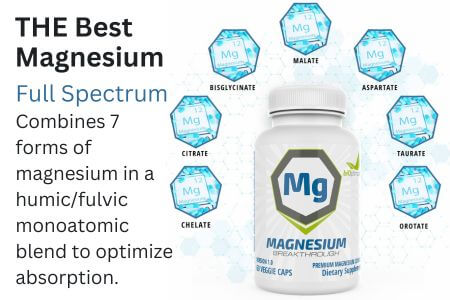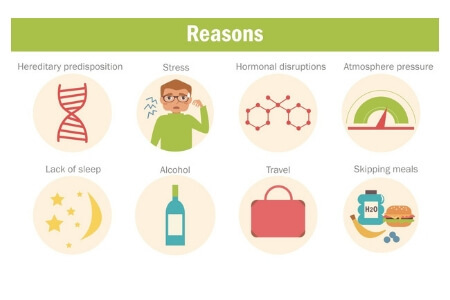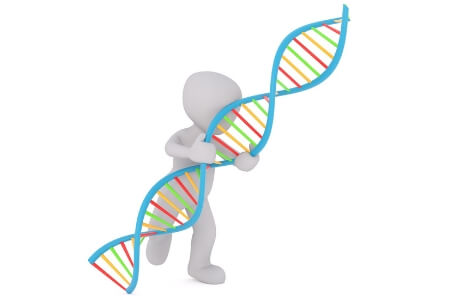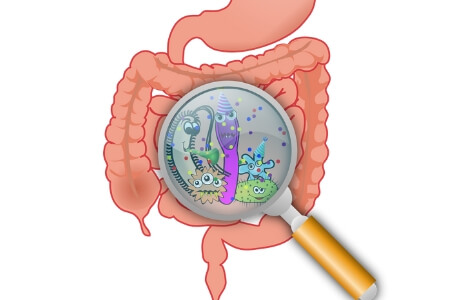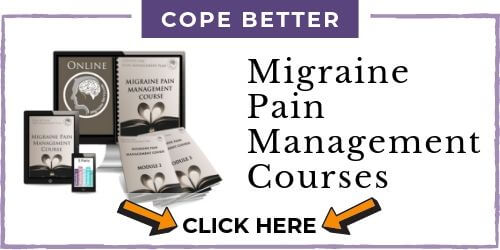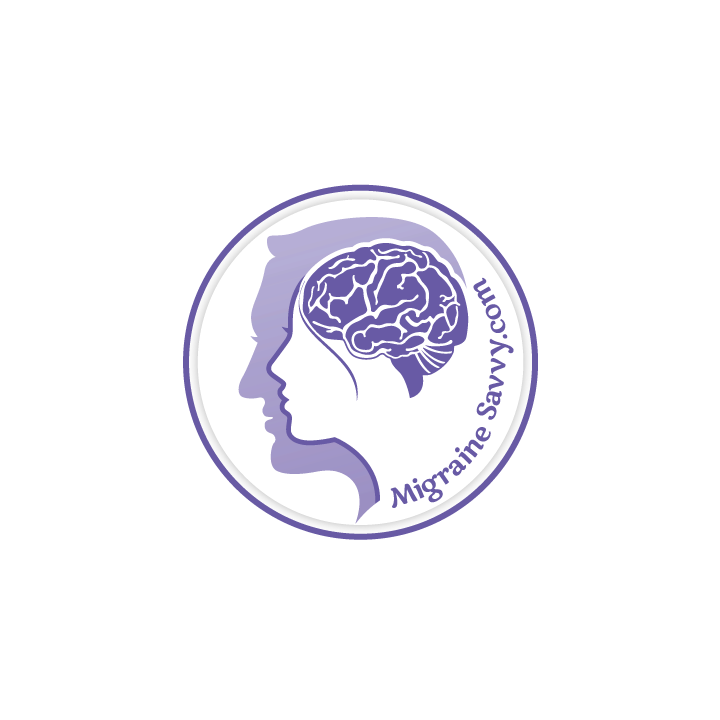COMPLETE MAGNESIUM SUPPORT
My Top Choice - Magnesium Breakthrough - The ONLY supplement with all 7 essential magnesium types in one formula. Most only have 1-2 types, leaving you deficient.
Premenstrual Headaches: How to Find Relief
This head will self-destruct in 10... 9... 8 seconds. Ka boom! Disabling premenstrual headaches and fluctuating hormones have ruled my life for the past thirty years, or dare I say ruined my life.
Let's talk about what you can do right now to get some relief and...
I know that sounds like an exaggeration, but migraine disease has changed my life in every way.
Every month for twenty days ... yes twenty, I have migraines around my monthly period. More commonly premenstrual headaches occur for two days before your period begins.
The changes in hormones or a hormone replacement therapy treatment like birth control pills can influence the occurrence. So please be aware.
The administration of hormones can actually worsen migraines and headaches and can even expose us women to an increased risk factor for strokes.
“Some women find that their headaches and migraines improve when they start the pill; others notice that their headaches and migraine get worse” (MigraineTrust.org).
The very first menstrual cycle called Menarche, pregnancy, menstruation, and menopause, can all influence the occurrence of these headaches. The women who suffer from migraines usually start having them as teenagers after menarche, a few days just prior to menstruation.
This age varies in different cultures. Some good news is that the headaches can improve during pregnancy and menopause.
There is a definite connection between migraines and hormones. 90% of us suffer from some form of PMS, some symptoms for up to a week before menstruation. It's not just headache.
With the more severe headaches that turn into a migraine, the onset can be a frightening experience and can drastically limit the ability of the person to function. Some of us are disabled. That's me, sadly.
As we are in this for the long haul - say age thirteen to menopause at age 52 or so, I suggest going to your physician to come up with a pain management plan.
So what are your options to stop them now?

Using Birth Control Pills to Help Stop Premenstrual Headaches
Research as far back as 1966 has reported that women who take high dose estrogen birth control pills will have more severe migraine attacks than those taking birth control pills containing progesterone.
Fluctuating hormones are a very common migraine trigger for us women, and being on the pill is supposed to keep them at bay.
The stats show that about ten percent of women get migraines with their period. That sounds low to me, as every single woman I have met says she gets more around her period.
The first line of treatment for these migraines is the triptans. They should be taken early in the attack and if you know your pattern, they can even be taken a day or two prior to the arrival of your period.
Pregnancy also influences migraines, because of the fluctuation of hormones. There are some females that find during pregnancy, their migraines actually cease or at least are less often. With others, the attacks during pregnancy remain unchanged or get worse.
During menopause, the estrogen levels fluctuate and can trigger an increase in the migraines. Typically, women who go through natural menopause have less difficulty than women who have had hysterectomies.
In my experience, progesterone agents seldom have an effect on the occurrence or severity of migraines. But this is definitely worth a try as many migraine sufferers get relief using progesterone pills or creams around their menstrual cycle.
My #1 Choice in Magnesium Supplements
What You Can Do Now to Help Stop the Suffering
There is both acute and preventive medication available to treat premenstrual headaches.
I have written a menstrual migraine treatment post with the details, so just click on the link.
It’s always wise to talk with your doctor about all of your options available.
Your goal is to stop any needless suffering.
Taking birth control pills or another form of hormone balancing medications, if you are under the age of twenty, may be one of the first things your doctor mentions to help combat your premenstrual headaches.
But please know that this may affect your ability to have children when you are older. So this is really something you need to consider carefully.
There are more natural bio-identical hormones that might feel more suitable to you to balance your hormones. And you know there are numerous forms of other birth control options.
You also need to take into account all of your other health conditions, if any, and your family history. There are side effects with any medication, so again, talk with your doc.
I was lucky to find that Naramig works to abort my attacks. It took me years to take them early enough so I didn’t get any breakthrough pain, but I am very thankful.
My periods were like clockwork, so I used the ‘take it anyway’ method. That's what the neurologist said - "take it anyway. If it isn't a migraine, it won't hurt anything."
After fourteen years of no effective pain killers in sight, I was very sure of my pattern around my period. So, often, I would need to take one for about 5 days in a row. Not the recommended way, but I cleared it with my specialists. Thank God for that! The pain was ridiculous and ruined my life. But we won’t go there today.
Stay in touch by joining the mailing list.
Until next time, be well.
WANT MORE TIPS? Subscribe to my newsletter and follow along on Facebook and Pinterest for all of the latest updates.
MIGRAINE CAUSES Related Articles
How to be more MIGRAINE SAVVY right now...
Resource: Migraine Trust.Org (no date) Migraine and the contraceptive pill. [Online] Available: https://www.migrainetrust.org/living-with-migraine/coping-managing/contraceptive-pill/ Accessed Jun 22,2016 Updated Jan. 2, 2023.

